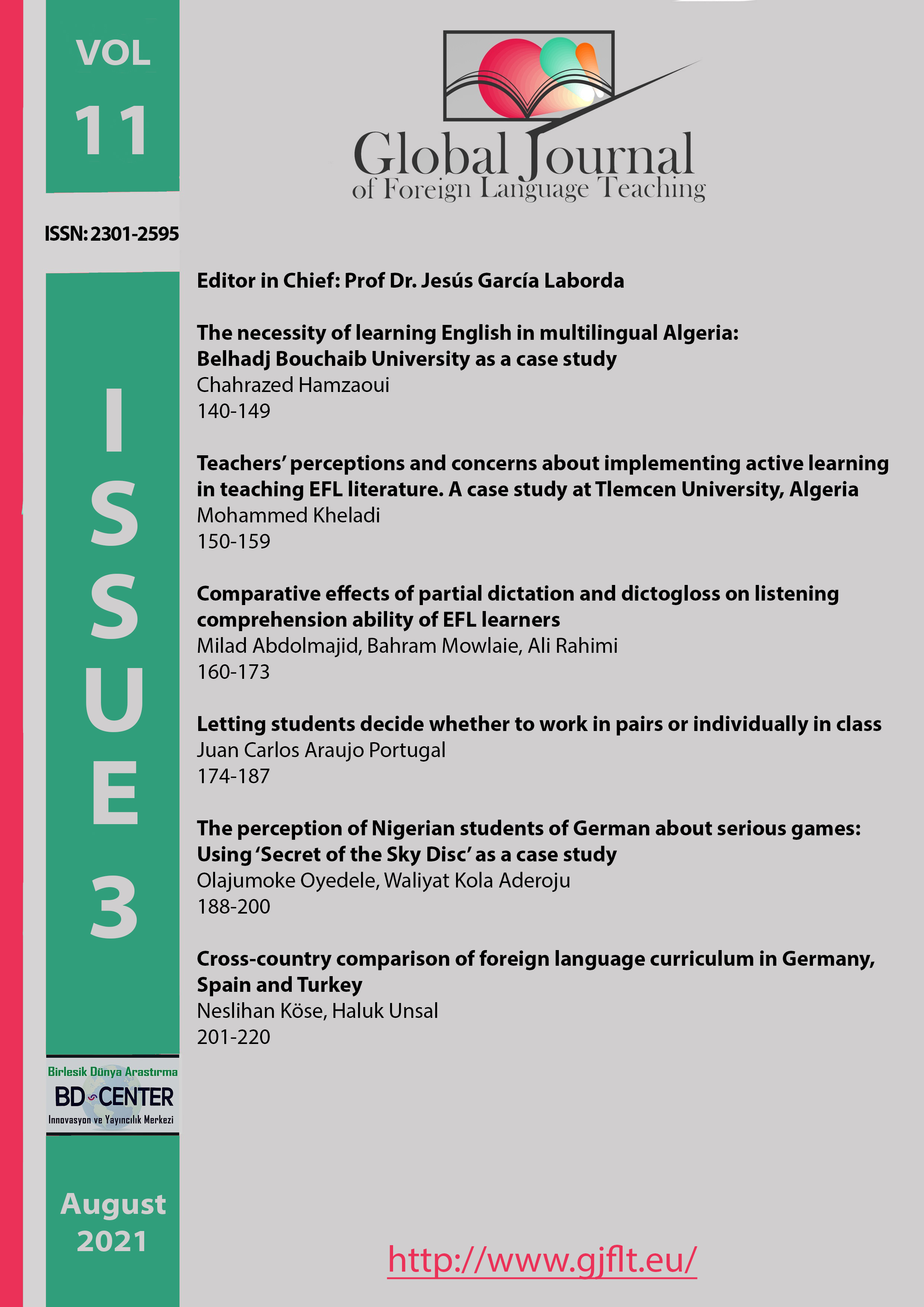Letting students decide whether to work in pairs or individually in class
Main Article Content
Abstract
Communicative approaches to language teaching have advocated for the benefits of pair and group work when learning foreign languages. This paper reports an example of classroom research that has been carried out with intermediate students of English, level B1+, focusing on how they prefer to work in class as regards grammar and vocabulary exercises when given the chance to choose. In order to obtain the results for this classroom research study, the students’ teacher becomes a participant observer who records the data throughout the course and collects the data on observation worksheets. Contrary to what it might be expected, the outcomes show that many of the younger students prefer working on their own and then compare and justify their answers with their partners, rather than working in pairs from the very beginning. This is recommended to establish whether this is just specific of these students, or it is something common with other students and teachers have been unaware of it.
Keywords: Classroom research, individual work, learning gains, learning preferences, pair work, personal decision.
Downloads
Article Details

This work is licensed under a Creative Commons Attribution 4.0 International License.
Authors who publish with this journal agree to the following terms:- Authors retain copyright and grant the journal right of first publication with the work simultaneously licensed under a Creative Commons Attribution License that allows others to share the work with an acknowledgement of the work's authorship and initial publication in this journal.
- Authors are able to enter into separate, additional contractual arrangements for the non-exclusive distribution of the journal's published version of the work (e.g., post it to an institutional repository or publish it in a book), with an acknowledgement of its initial publication in this journal.
- Authors are permitted and encouraged to post their work online (e.g., in institutional repositories or on their website) prior to and during the submission process, as it can lead to productive exchanges, as well as earlier and greater citation of published work (SeeThe Effect of Open Access).
